Indian chrysanthemum: description, varieties and care recommendations
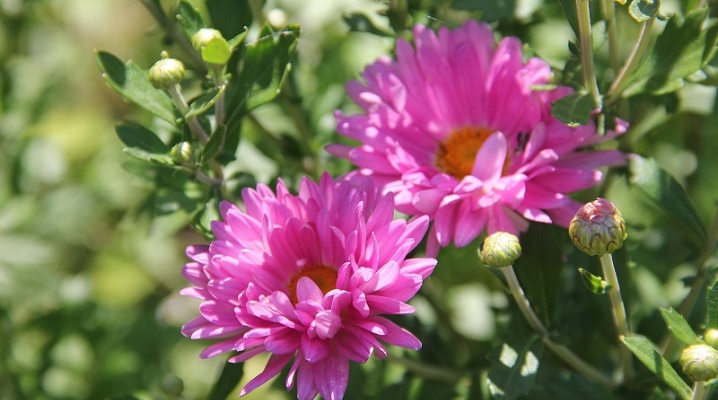
Among the variety of chrysanthemums, with its beautiful semi-double inflorescences, the Indian chrysanthemum or, as it is also called, the indicum chrysanthemum stands out. This plant is thermophilic, it has special requirements for care and climate.
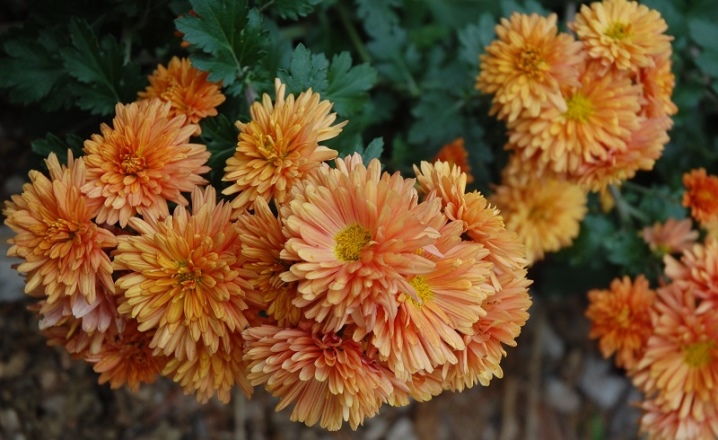
Peculiarities
Indian chrysanthemum is a perennial, reaching a maximum height of 1.5 m (average 0.6-1 m). Under natural conditions, it can be found in India, the Middle East and the Caucasus, in Europe it is not widespread. The plant has two types of shoots - they can be either straight or creeping. The leaves have an elongated oval shape, a beautiful emerald color and slightly pubescent. Below and in the middle of the shoot, they are larger, with a length of 7-10 cm, the edges of the leaf plates are dissected.
The flowers are similar to baskets and are characterized by different colors, depending on the variety. The flowering period of a plant is determined by climatic conditions and can last from August to the end of November, or from September to December. Flowers are single, located on each branch. The roots of the plant are well developed, thick. This type is used for the manufacture of medicines, because flowers contain a large amount of useful elements and vitamins.
In addition, they make teas, tinctures, which have antipyretic effects, and compresses against migraines are made from the leaves. The beneficial effects of chrysanthemum essential oil on the human brain have been proven. This property is used in the treatment of Parkinson's disease.
This species is not particularly suitable for cultivation in mid-latitudes - the plant will be distinguished by slow growth, a short flowering period and small inflorescences.
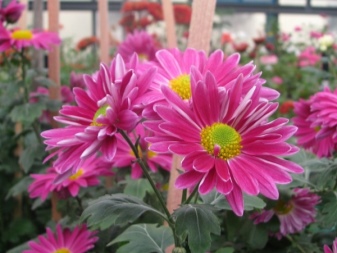
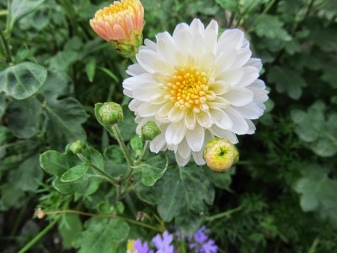
Varieties
Indian chrysanthemum is distinguished by an extraordinary variety of varieties, which differ in both the shape of the petals and their color.
"Gazelle". The bush can reach a height of one meter. Double flowers have a white tint, their diameter is about 20 cm.
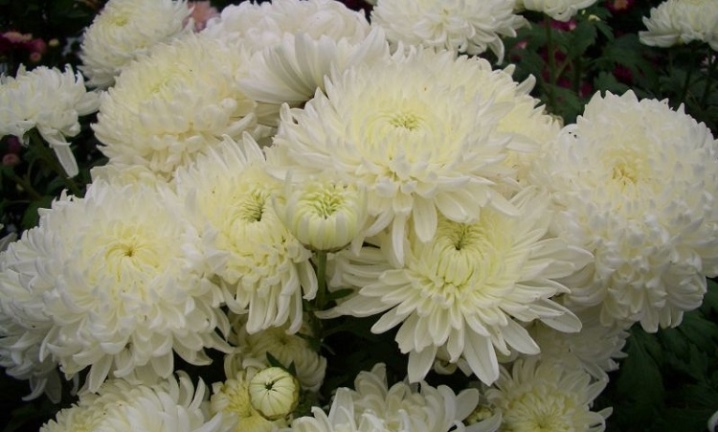
"Indicum Mix". The variety is represented by a mixture of flowers that have different colors and shapes.
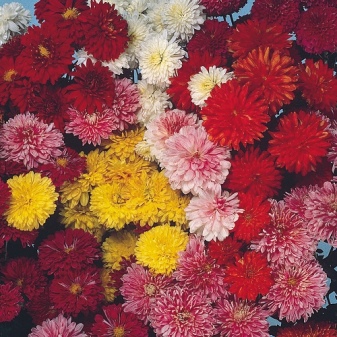
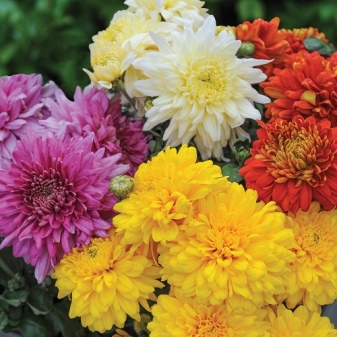
"Aurora". The shrub is 1 m high, decorated with not very large orange flowers. Flowering lasts two months. The variety is considered to be quite common.
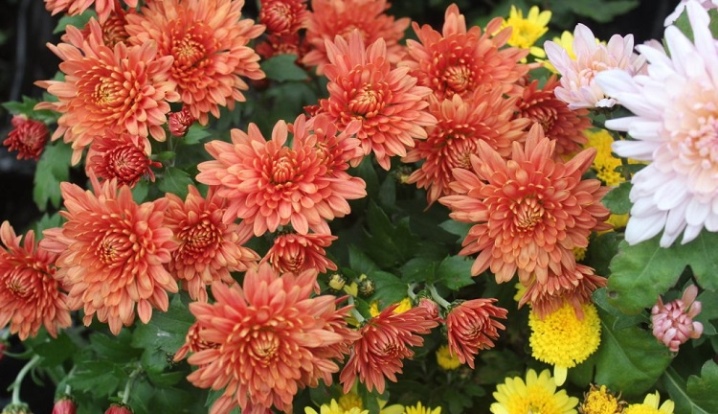
"Anastasia". The variety blooms for a long time, from the beginning of autumn to the onset of frost. The bush can reach 70 cm. Large flowers have different colors: white, lilac, yellowish, multi-colored. Although each subspecies differs in color, it has rather large buds (17 cm) with thin petals.
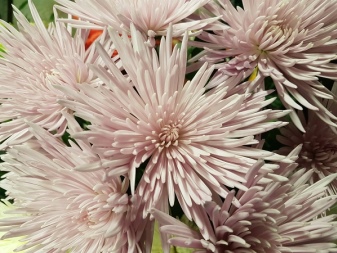
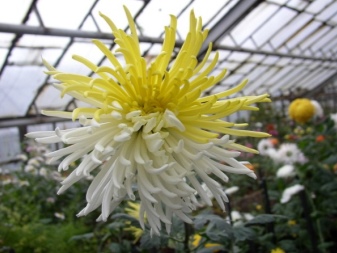
"Artist". Belongs to undersized shrubs, often used as a house pot plant. The color of the petals is quite original, consisting of alternating white and pinkish (or cream, yellow) stripes.
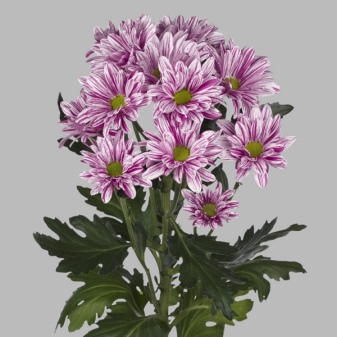
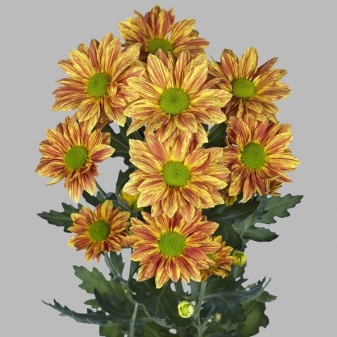
Vimini. Also a short chrysanthemum with a stem of about 30 cm. The variety is distinguished by abundant flowering, although the buds are small. Their color is orange with a dark brown center.
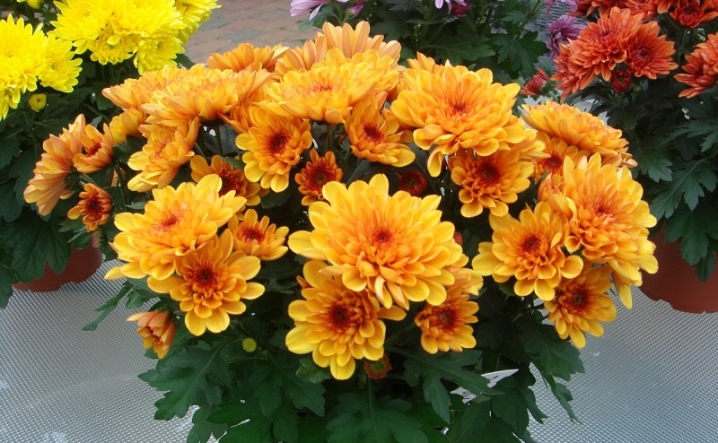
"Valentina Tereshkova". Large buds have a dark crimson hue on top, and their lower part is lighter. The variety is often used for bouquet cutting.
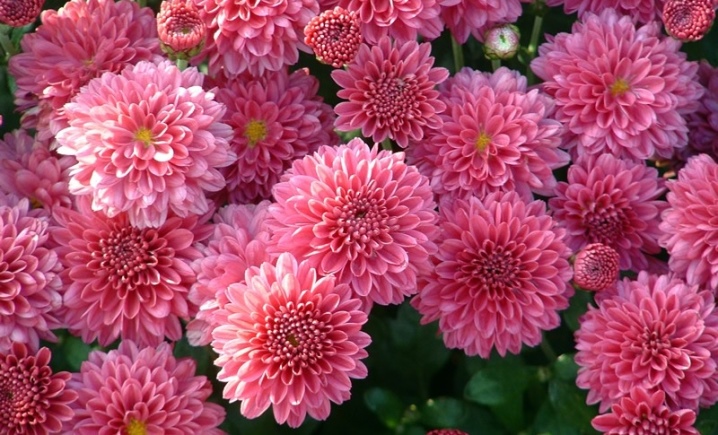
"Aviator". A new semi-double variety with an upright stem with dense emerald leaves on it. Petals of medium flowers are ligulate, have a wide shape. The variety is well transported and keeps its shape after cutting.The buds are easy to stain if you add special dyes to the water for irrigation.
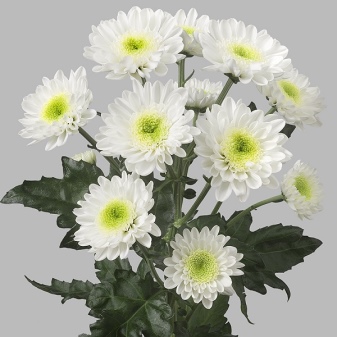
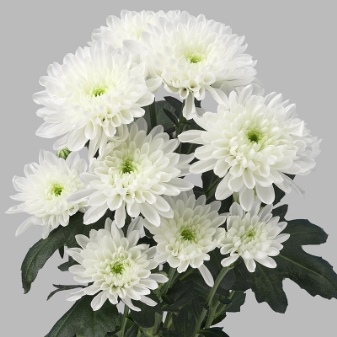
"Alamos". The variety was bred specifically for cutting, it is resistant to transportation. The plant has simple chamomile-like inflorescences of small diameter. The petals are lilac or burgundy with white tops, the core of the flower is light green. The bush is not too tall, about 70 cm.
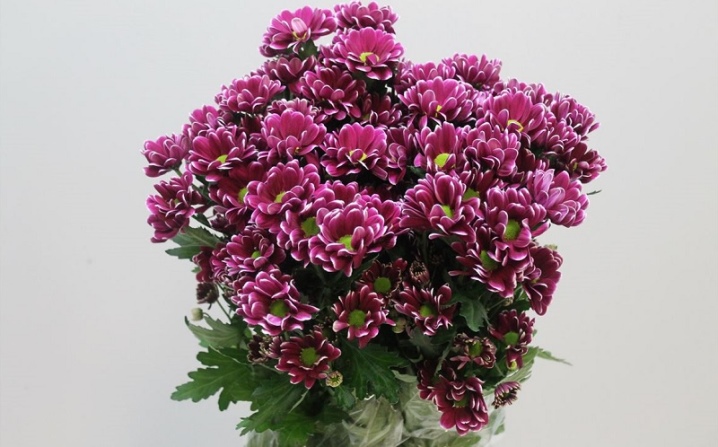
"Barolo". An Italian bush variety with small flowers. The petals are of the correct shape, evenly covered with red. The middle of the bud is yellow with a slight greenish tint in the very center. The leaf plates are smooth, herbaceous. The bouquet can stand for 3 weeks.
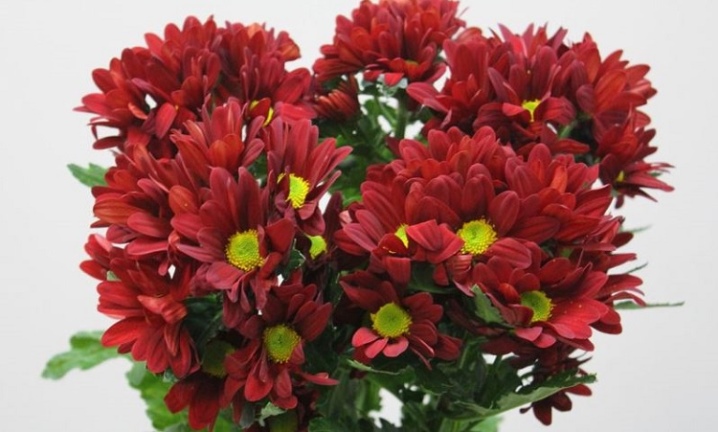
Bartoli. Variety with small double inflorescences. The petals are numerous, regular in shape, orange in color. In an unopened form, in the middle, they are of a greenish tone. The bush has strong weakly branching stems, reaching 70 cm.
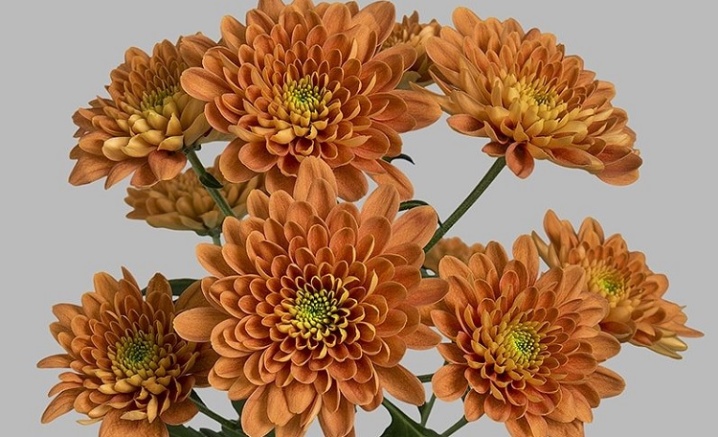
"Barge". Chrysanthemum belongs to single-headed large-flowered varieties. Terry buds, large, rich purple-purple hue. The plant has an erect shape with well-branched shoots reaching 60-70 cm.
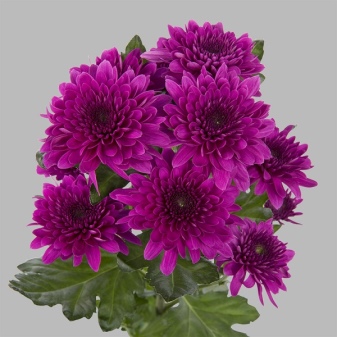
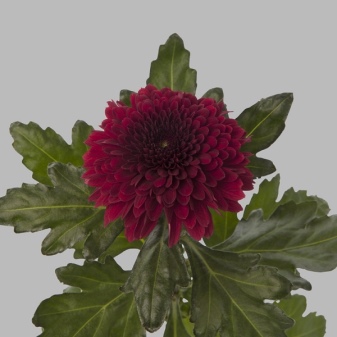
Glossy. This hybrid is distinguished by an unusual color of petals - they are covered with large stripes of lilac-white color, and the middle is green. The straight, low bush has a tart herbaceous odor. It remains cut for a long time.
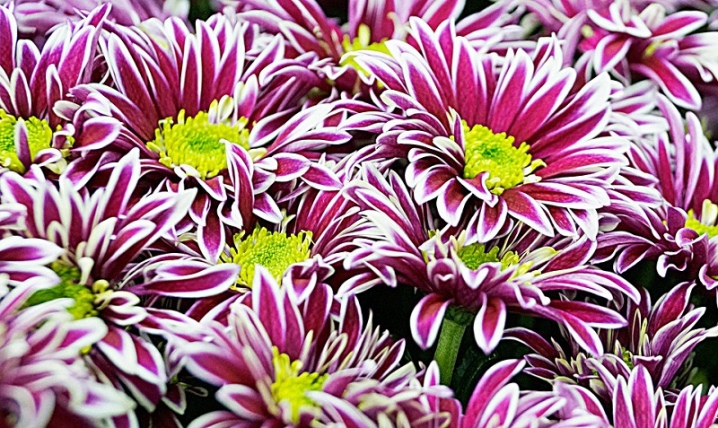
"Grandeza". A low variety that is used for cutting, and also planted as a pot culture. Plant height is only 30-40 cm. The multi-tiered petals have a mix color.
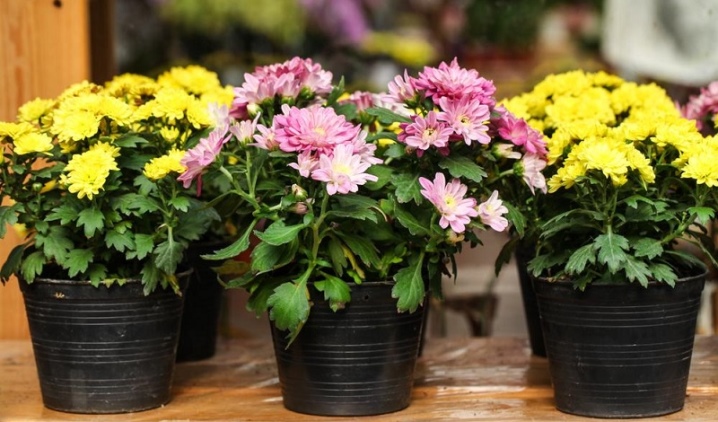
Dante. The variety has small double, light lilac flowers, in the center they have a greenish tint. The bush is strong, with an average amount of bright green leaves on the stems. Its height is 60-70 cm.
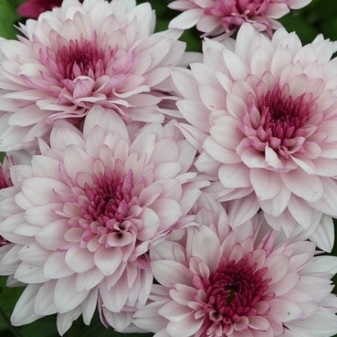
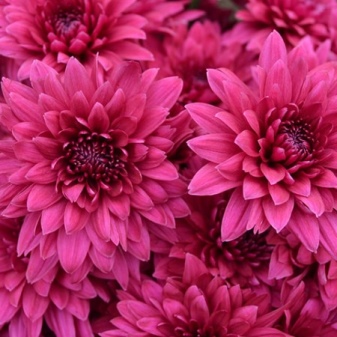
"Carnival". An early flowering variety used for cutting. The flowers are semi-double, similar to chamomile. The color can be pink, lilac, light purple at the top and white at the bottom. The middle is open, yellowish. The bush is small in height, 40-60 cm, and the size of the opened buds is 6-7 cm.
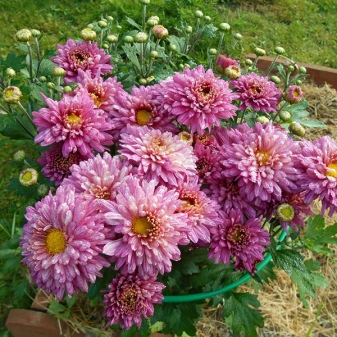
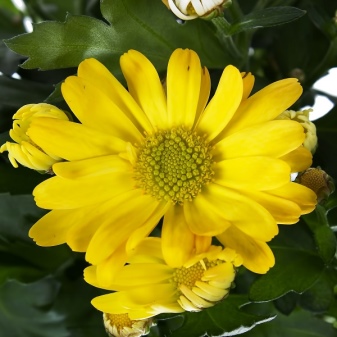
"Robino". The color of the flowers is very spectacular: yellowish-claret, pinkish-white or reddish-white tubular petals at the base, located around the circumference of the greenish-yellow center.
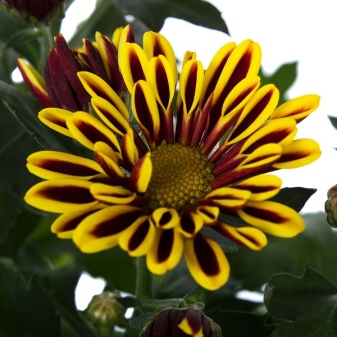
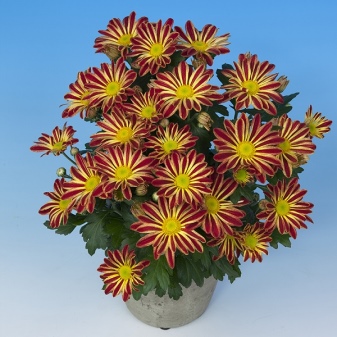
Red Start. It has small double flowers with a diameter of 6-7 cm. The color of the inflorescences is purple, uniform throughout the petal. The plant is erect, 60-70 cm tall, green leaf plates are quite dense. The flower is used mainly for cutting.
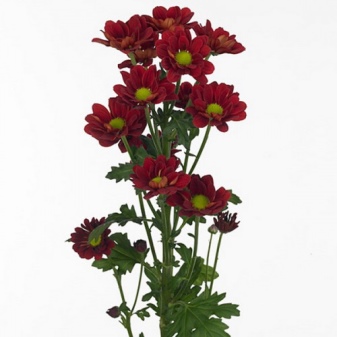
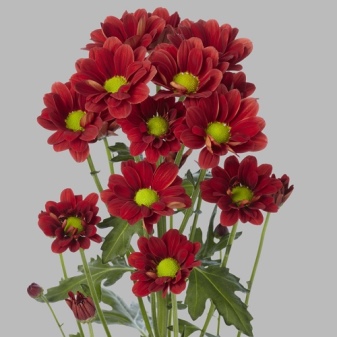
Royce Lovely. Terry buds are painted in a rich lilac-pink tone with a smooth transition. At the edges, the color is almost white, towards the center it becomes darker. The stems of the plant are straight, with leafy plates of rich green color, the flower grows to a height of 70 cm.
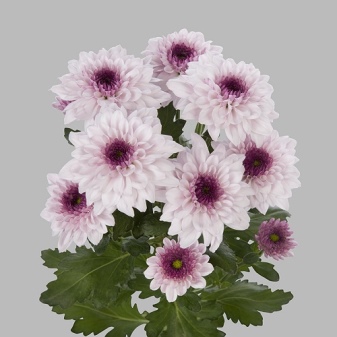
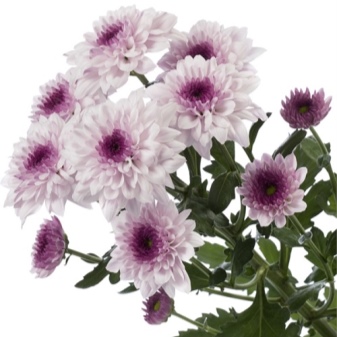
Fanfare. The variety is distinguished by early flowering and a mixture of colors. Petals of different colors: white, yellow, orange, red and pink are combined into semi-double inflorescences 5-6 cm in diameter.The bush does not differ in special height, it grows up to 50-60 cm.
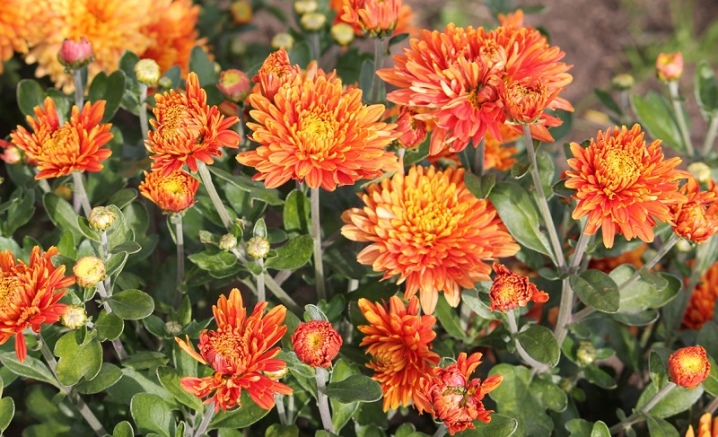
Fianna. The bush hybrid has double lilac buds and a bright herbal scent. The buds are small, 7-8 cm in size. And the bush itself grows up to 70 cm. It is cultivated mainly for cutting.
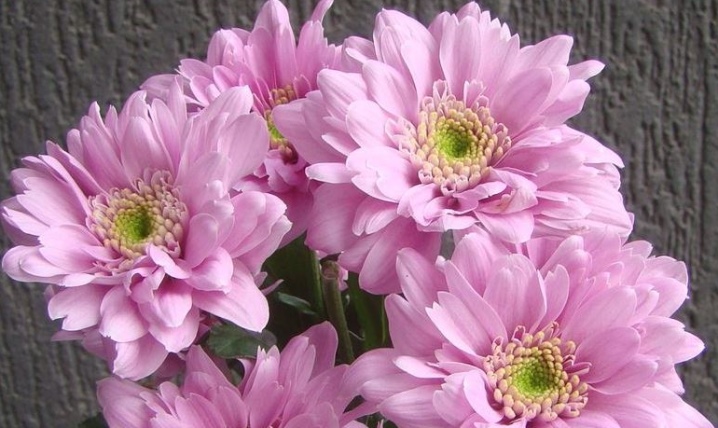
Jaguar Purple. Refers to medium-sized terry varieties. The inflorescences are colored purple. The bush has straight, well-branched stems with emerald leaf blades. The flowers are 6-7 cm in diameter, but when cutting side shoots, it is quite possible to grow one flower on a stem about 10 cm in size.
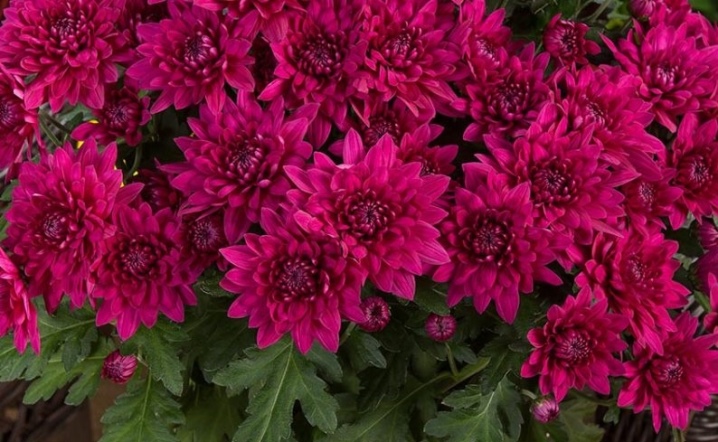
"Tziya". The variety has a beautiful color: rich burgundy petals have a white edging. The bush is not particularly tall, the flowers are also medium.
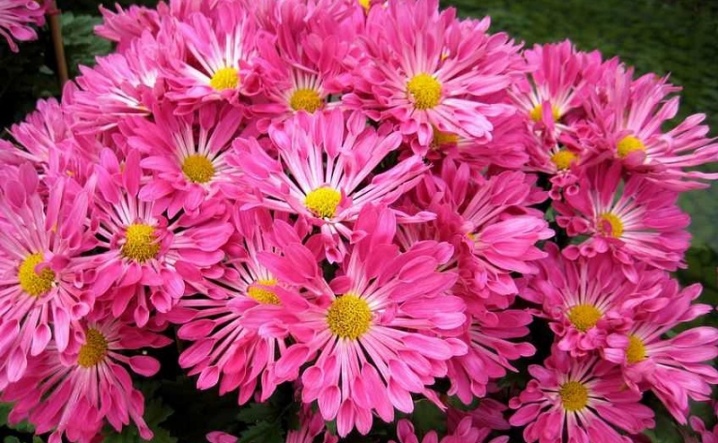
North Bye. The bush stands out with yellowish-white petals with a noticeable dark lilac stripe.
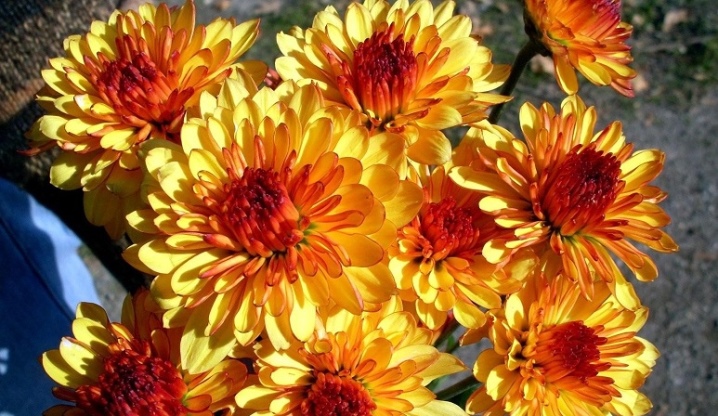
Like Worth. The inflorescences of the variety are similar to chamomile and have great decorative value due to their unusual color. Around the green center are orange petals, which are decorated with yellow stripes along the edges.
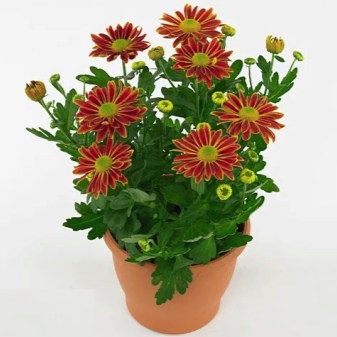
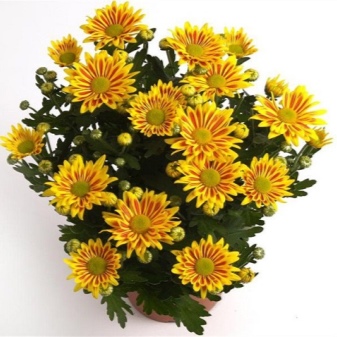
The list of Indian chrysanthemum varieties does not end there. There are many more equally spectacular varieties that can become a real decoration of the site. The terry chrysanthemum Indicum Decorum stands out especially among them.
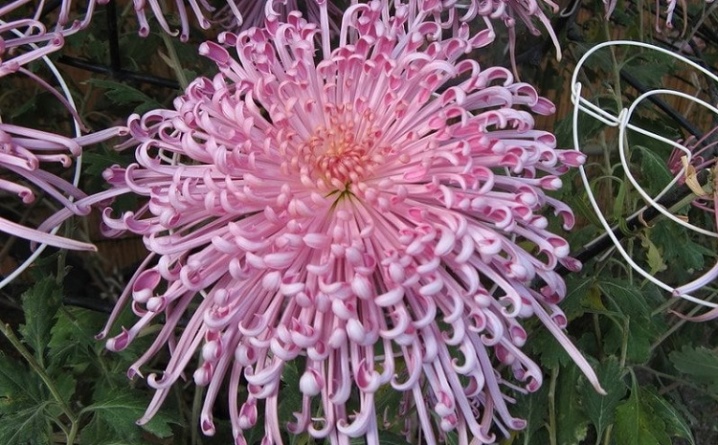
Landing
Before planting a bush, you should decide on the place of its planting. To do this, it is advisable to choose a site on a small elevation so that excess moisture can drain off and the roots do not rot. Also, the place should be well lit and protected from drafts. Chrysanthemum grows best on loamy soils. Chrysanthemum should be planted in an open area in early June.
Prepared seedlings are taken along with a small clod of earth, moistened and planted in holes dug out ahead of time. The size of the depression should be made about 2 cm larger than the earthen coma, the root collar of the bush should be above the ground or deepened by no more than 1 cm.The plant is placed in the hole and carefully covered with earth mixed with humus. After that, it should be watered.
A distance of 50 cm between the planted bushes should be adhered to.
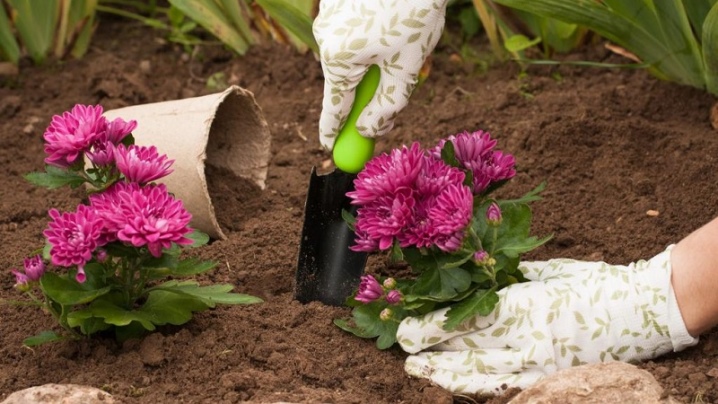
Subtleties of care
If the chrysanthemum indicum is properly looked after, it will always have a spectacular appearance and long flowering. Flower care is simple and consists of the following:
watering is needed moderate and regular, about 1-2 times a week, you need to focus on the drying of the upper layer of the soil;
it is worth feeding it systematically, after planting - with nitrogen fertilizers to build up green mass, and at the beginning of budding - with phosphorus-potassium fertilizers for lush flowering;
pruning helps the plant to keep its shape and look beautiful, and in the fall, before digging up, the plant is cut to the root;
transplanting is carried out annually on the condition that the plant is dug up for the winter. The flower is transplanted together with an earthen clod into a well-moistened soil flavored with organic matter.

Preparing for winter
For the winter time, the bush is cut off, leaving only about 20 cm, dug out together with an earthen lump and put in boxes or containers, sprinkling with sand. Plants are stored in the cellar, without moisturizing, at + 2 ° C. You can transplant a bush from the garden into a pot and keep it in the room. It will bloom for a long time in indoor conditions.
When flowering ends, and the stems are bent to the sides, the chrysanthemum must be cut at the root and taken to the cellar for the winter.
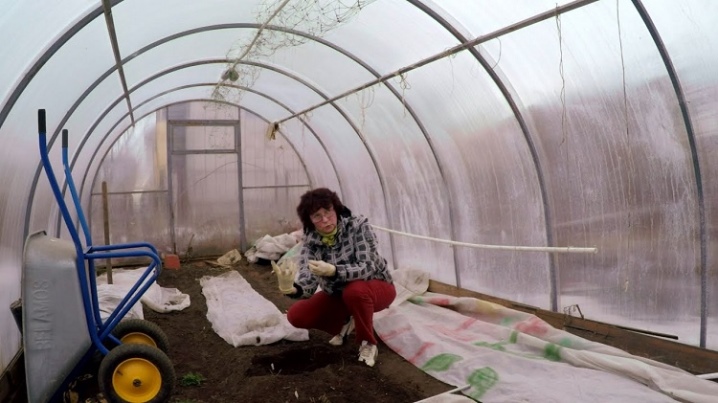
Reproduction
Grow Indian chrysanthemum can be done in two ways:
seeds;
by cuttings.
When propagating by the first method, the seeds are first sown on seedlings. To do this, they are first kept wrapped in a cloth or napkin for several days, which is regularly moistened at a temperature of + 5 ° C. Then they are sown in a container with damp earth, but do not sprinkle it on top. The container is covered with glass or polyethylene, remembering to ventilate.
The shelter is removed when the seeds germinate.
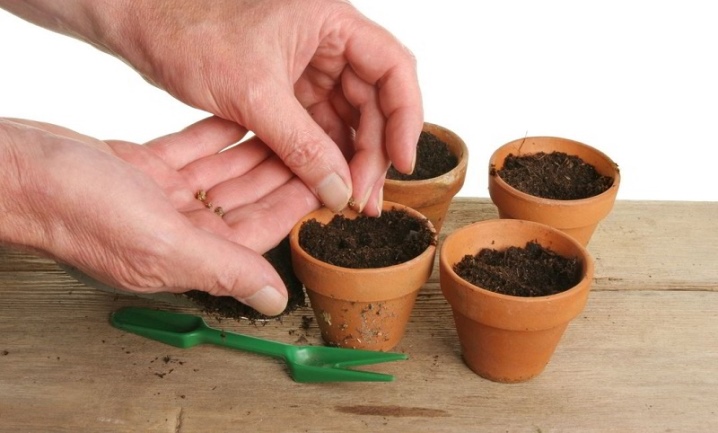
Sprouts are planted in open soil after it warms up well. Growing from seeds is the most effective way to propagate chrysanthemum indicus. When cultivated by cuttings, they are cut off with a length of over 20 cm. You can plant them directly into the soil (in spring) or in a container with earth. The sprouts are covered with a film, but so that it does not touch them, while airing them regularly.
The polyethylene is removed after rooting. Seedlings grown in containers are transplanted into open soil. They do this in May-June.
New bushes need to be fed with nitrogen-containing fertilizers.
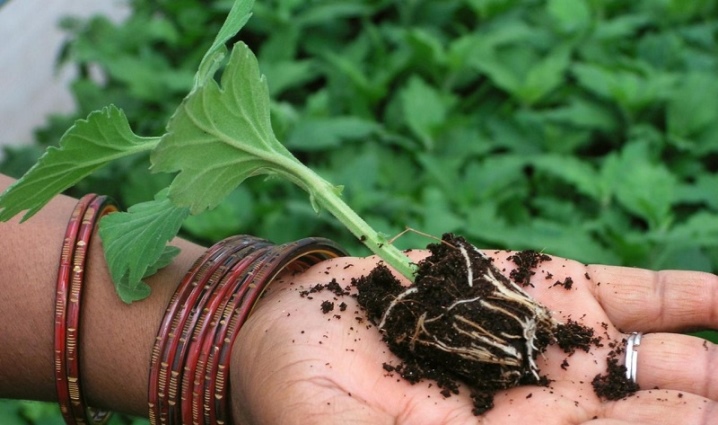
Diseases and pests
Chrysanthemum indicum, like other crops, is affected by pests and diseases. Most often, the plant is disturbed by nematodes, spider mites and aphids. The damaged leaves are covered with spots, the bush dries up. The fight against parasites consists in the treatment of chrysanthemums with insecticidal preparations. From excessive moisture, the plant can be affected by powdery mildew.
If this happens, the diseased parts must be removed, and the bush and the ground around it must be treated with fungicides (Fundazol, Topaz or Bordeaux liquid).
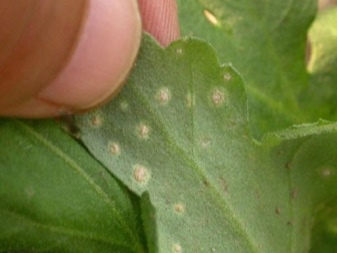
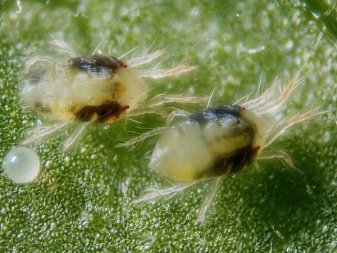
Use in landscape design
This type looks spectacular on any flower bed or in the garden, serves as a decoration for ridges and mixborders. The bush looks equally exquisite both in a single planting and in a group, especially if the varieties have different colors. The variety of varieties allows you to give free rein to imagination in the design of the site:
garden paths are decorated with low bushes or used in plantings in the foreground;
tall flowers are planted as a background for other plantings;
separately planted bushes, you can create bright spots on a general green background;
you can plant chrysanthemum bushes in the form of an original pattern.
Due to its long and beautiful flowering, Indian chrysanthemum has rightfully earned the love and admiration of many flower growers, and simple care and maintenance allows even beginners in floriculture to grow a flower, it is worth adhering to only a few rules.



You can find out how to root cuttings of Indian chrysanthemum from the video below.





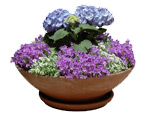
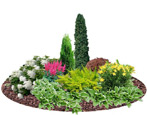




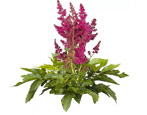

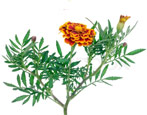
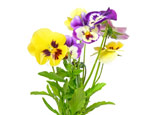

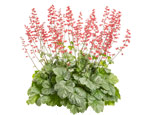

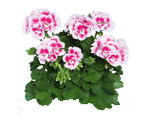
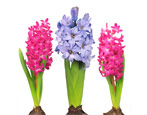



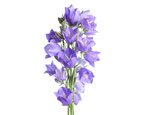
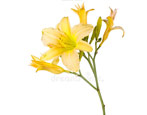
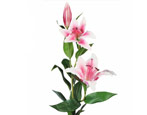
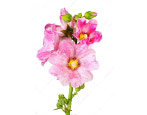

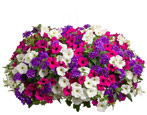
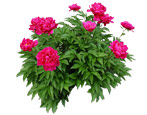
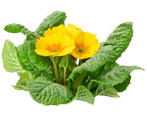
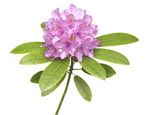


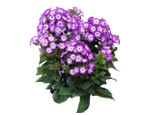
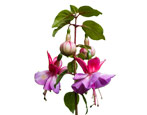
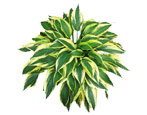
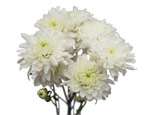

































































The comment was sent successfully.